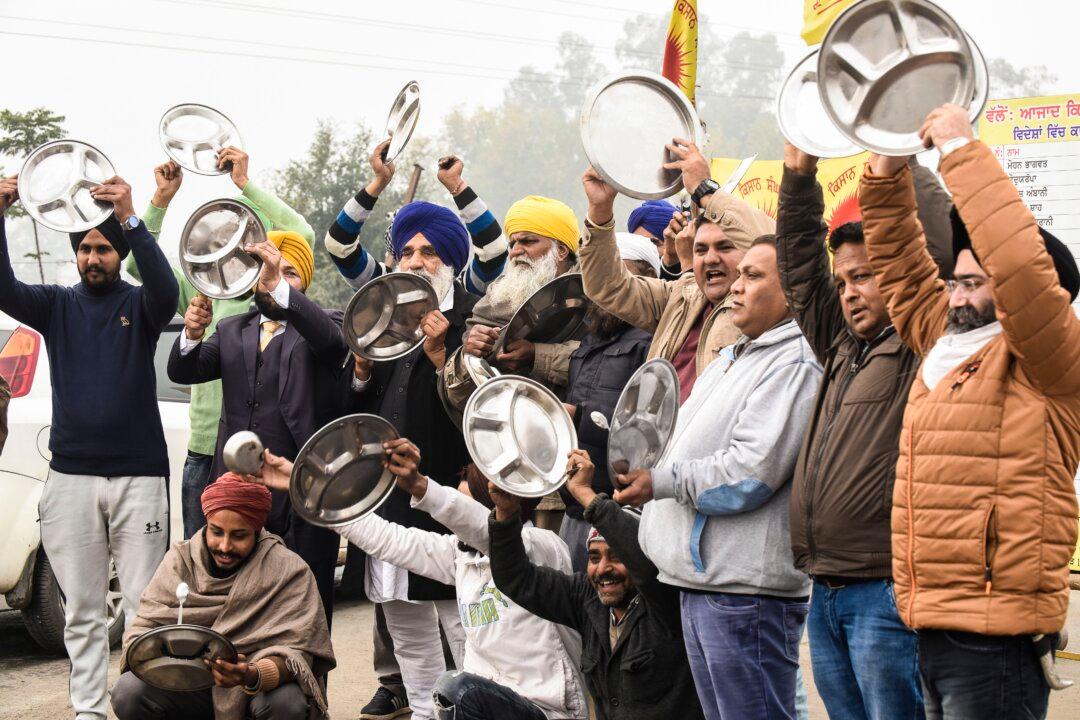NEW DELHI—As a protest by India’s farmers against new reforms entered its sixth week, a kind of ecosystem has developed at the encampment site on the outskirts of New Delhi, where thousands of farmers are staying with their tractor-trolleys, pitched tents, and open kitchens. Meanwhile, netizens are aggressively and openly debating about the measures.
Such a situation, when opinions sharply differ but those holding them can coexist, is symptomatic of a functional democracy, experts say.





